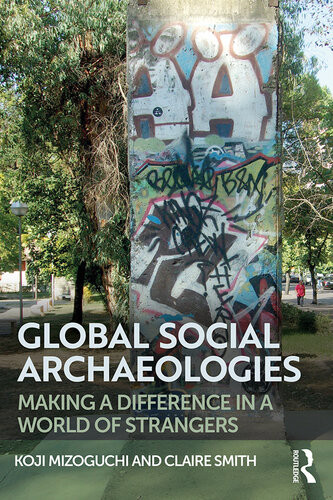

Most ebook files are in PDF format, so you can easily read them using various software such as Foxit Reader or directly on the Google Chrome browser.
Some ebook files are released by publishers in other formats such as .awz, .mobi, .epub, .fb2, etc. You may need to install specific software to read these formats on mobile/PC, such as Calibre.
Please read the tutorial at this link: https://ebookbell.com/faq
We offer FREE conversion to the popular formats you request; however, this may take some time. Therefore, right after payment, please email us, and we will try to provide the service as quickly as possible.
For some exceptional file formats or broken links (if any), please refrain from opening any disputes. Instead, email us first, and we will try to assist within a maximum of 6 hours.
EbookBell Team

4.7
96 reviewsGlobal Social Archaeologies contributes to the active engagement of contemporary social archaeology through addressing issues such as postcolonialism, community heritage, and Indigenous rights. It addresses the major challenge of breaking down global divides, especially in relation to fundamental human rights, inequality, and inequities of wealth, power, and access to knowledge.
This authoritative volume, authored by the current and past presidents of the World Archaeological Congress, introduces readers to the various theoretical and methodological tools available for the investigation of the past. Taking into account the implications for contemporary societies, it offers a new framework for social archaeologies in a globalised world. By combining new data from their research with an innovative synthesis and analysis of leading research by others, the authors have developed fresh conceptualisations and understandings of archaeology as a social practice, and of the ways in which it simultaneously straddles the past, present, and future.
Exploring a range of case studies and enhanced by a wealth of illustrations, Global Social Archaeologies highlights a new approach to archaeology, one that places human rights at the core of archaeological theory and practice.